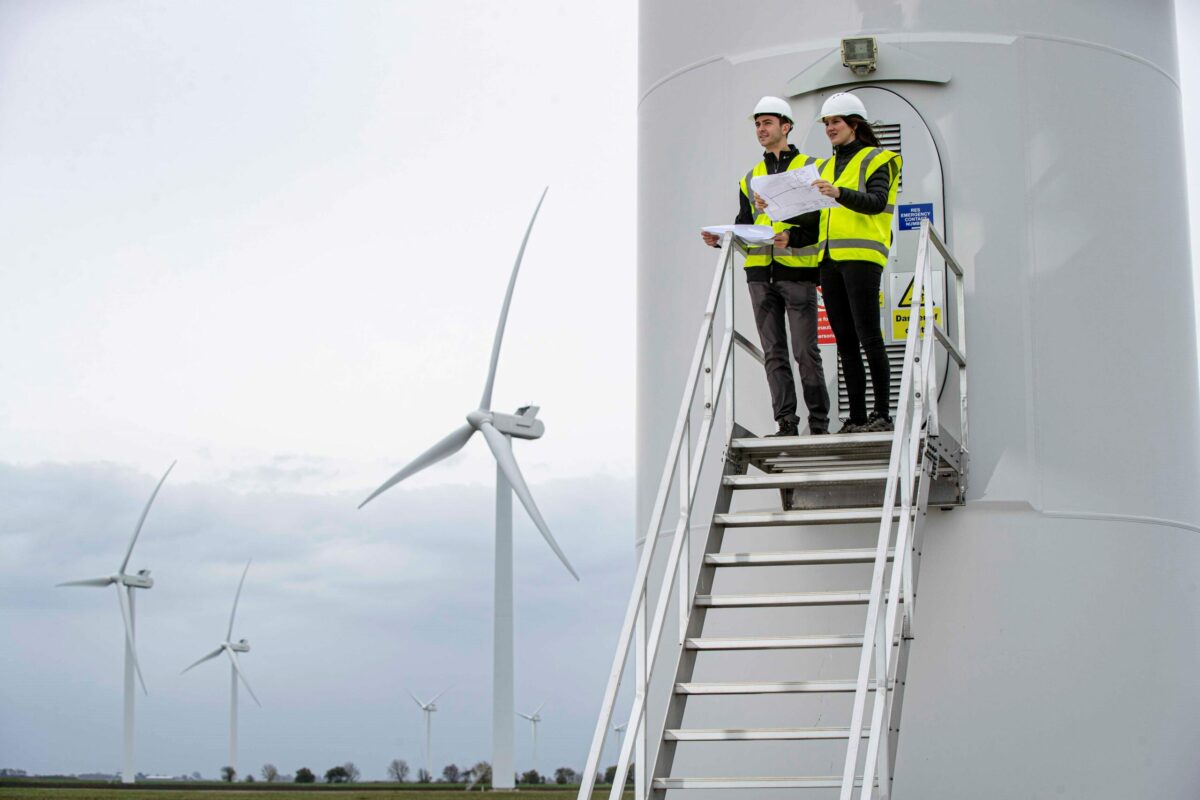
Image: ORIT.
Despite the uncertainty created by COVID-19, Octopus Renewable Infrastructure Trust’s (ORIT) dividend remains on track as the company releases its full interim results.
In the company’s full report released today (15 September), it has posted a dividend per ordinary share of 1.06p for the period 11 October 2019 to 20 June 2020, on track for the company’s target of a 3% annualised yield, which would equate to 3.18p per ordinary share for 2020.
ORIT’s NAV for the period is 97.58p per ordinary share, down only slightly from 98p at the time of the company’s first IPO in December. This is due to a slower deployment of its funds, minorly reducing the return on the company’s investments not quite balancing the lower expenses during the period.
Investments and overperformance
Despite recent drops in power prices due to the COVID-19 lockdown – which saw demand fall to record lows as businesses shut down for a period, leading power prices to fall by as much as 42% – the timing of the IPO and the company’s recent transactions has protected it from significant valuation falls, it has said.
Eight months since it’s oversubscribed IPO, ORIT has allocated 75% of the investment, predominantly to a UK solar portfolio.
Speaking to Solar Power Portal (SPP) today, Matt Setchell, co-head of Octopus Renewables, said: “As of the date of the interim evaluations, we had deployed £203 million, and since the end of June we've completed the acquisition of a French portfolio, which takes us up to £256 million, or 75% of the fundraise.”
Its first investment was a UK solar portfolio of 122.8MW of sites, which it acquired in March for a cash consideration of £144.3 million. This portfolio has outperformed throughout the period due to the sunny weather, including the ‘sunniest’ month on record in May 2020.
As such, in the six months ending 30 June 2020, the output from the portfolio was 63,906MWh, 7.4% ahead of forecast.
This was somewhat offset by inverter underperformance, which was caused by the high temperatures putting stress on the equipment alongside unplanned outages dues to essential DNO works.
David Bird, investment director at Octopus Renewables, told SPP: “It's not unusual in the solar industry, especially in this country to see the need to retrofit with continuous improvement programs, particularly on things like inverters and switchgear. That's something that we were well aware of and factored into the investment case when we bought, so there was no nasty surprises or anything unexpected in the performance we've seen over the period.”
ORIT worked with National Grid during the lockdown period, participating in the Optional Downward Flexibility Management (ODFM) service to help balance the high electricity output and low demand. By engaging early with National Grid, ORIT was able to protect its revenues and the generation or additional revenues. Participating in the ODFM generated excess revenues of £40k in May, according to the results.
This forms part of the company’s plans for active management of its portfolio, along with negotiating contracts with equipment suppliers that have helped ORIT obtain free inverter upgrades, new warranty periods and dedicated spare parts supply.
France and beyond: The remaining 25%
Beyond ORIT’s UK solar portfolio, it has acquired the Ljungbyholm wind farm in Sweden for an initial payment of £13.9 million and ongoing construction payments to date of £3.7 million. It is under construction – and the process has not been impacted by COVID-19 – and is expected to cost a further £43.4 million.
The company has also acquired a portfolio of French solar PV assets following the end of the period covered in the interim results. Whilst publishing its initial declaration of its interim results in August, the company announced it was expanding into France with the acquisition of a 119.5MW solar portfolio for a cash consideration of €58.9 million (£53.4 million).
Within today’s full results report, France along with the UK, Iberia and Nordic region, was identified as an area that would provide a steady flow of opportunities for the company and the wider market.
Beyond the company’s current acquisitions, it is “confident that we will be able to have fully committed the fund during Autumn” according to Octopus Renewables investment director Chris Gaydon.
“We're pursuing a pipeline of about £3.8bn at the moment, £1.4bn of that are opportunities where we've secured exclusivity or submitted a non-binding offer on them,” he told SPP.
Thanks to the large number of the company’s revenues being fixed-price assets – predominantly arising from government subsidies – it has a degree of stability in its predictions. Over the next two years, 64% of ORIT's revenues are fixed through ROCs or Power Purchase Agreements (PPAs) predominantly.
As it looks to invest the remainder of the IPO, this allows it to look at projects with more power price exposure, according to Bird.
In a statement released today, Phil Austin, chairman of ORIT added that the company was “well positioned to be a leader” as the world moves to a carbon neutral future.
“To mark our commitment to this, alongside our interim results we have today published our Impact Strategy, which sets out our core impact goal of accelerating the transition to net zero, alongside the three lenses through which all ORIT’s activities are considered from a responsible investment and impact perspective: Performance, Planet and People.’

